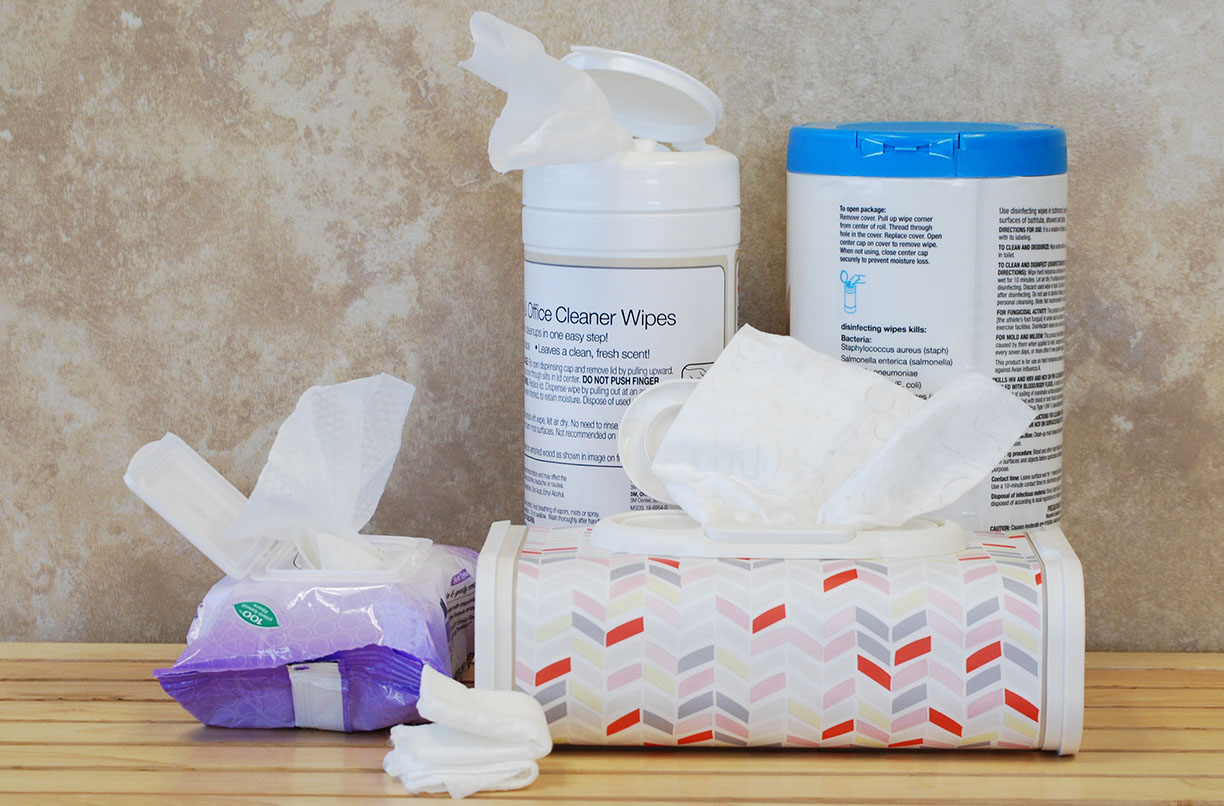Wipes are made of materials such as polyester, polypropylene, cotton, wood pulp, or rayon fibers formed into sheets. They may be packaged individually, or in small or bulk packaging. They are moistened with water and other ingredients, such as cleansing and moisturizing agents that help them work. They may contain other ingredients, such as preservatives to prevent the growth of bacteria and molds.
Wipes are designed to be durable enough for heavy duty cleaning tasks, yet still be disposable. The material used in wet wipes is a non-woven fabric similar to the type used in diapers and dryer sheets. Traditional fabrics are made by weaving together fibers of silk, cotton, polyester, wool, and similar materials to form an interlocking matrix of loops. Non-woven fabrics, on the other hand, are made by a process that presses a single sheet of material from a mass of separate fibers. Fibers, such as cotton and rayon, are used in this process, as well as plastic resins like polyester, polyethylene, and polypropylene.
Source: http://www.madehow.com/Volume-6/Baby-Wipes.html


